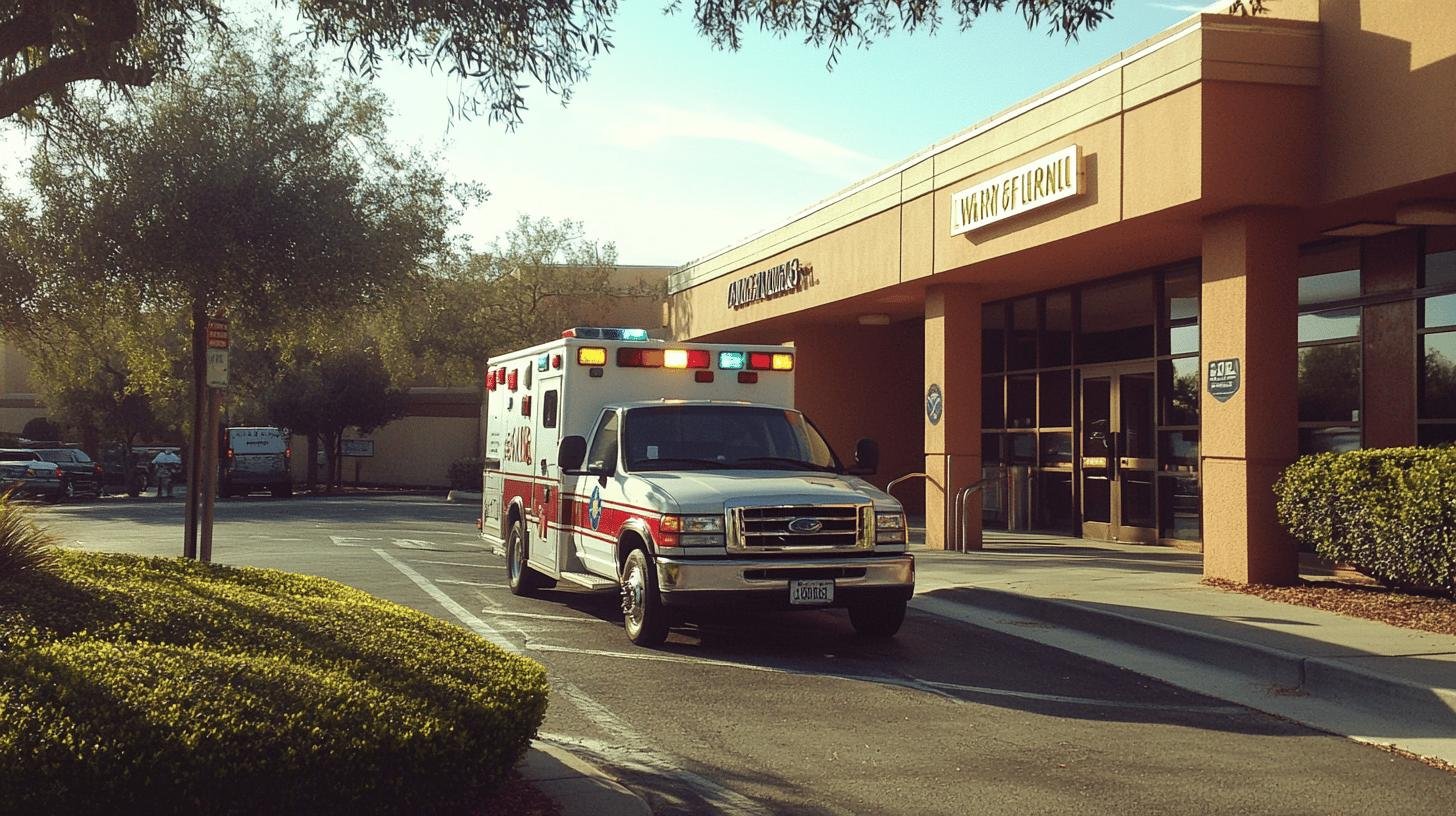TL;DR:
- Urgent Care Definition: Immediate care for non-life-threatening issues.
- Staff: Includes family practice doctors, internists, paediatricians, and ER doctors.
- Common Services: X-rays, stitches, minor fractures, cold, flu symptoms, minor burns.
- When to Use: Suitable for minor fractures, cuts, flu, sprains, and ear infections; ER for life-threatening conditions.
- Direct Primary Care (DPC): Personalized care with fewer patients and no insurance hassles.
- DPC Benefits: Better doctor-patient relationships, same-day appointments, and lower costs.
- Choosing Urgent Care: Consider location, hours, services offered, and read reviews.
- Online Consultations: Available 24/7 for quick advice, with services like Teladoc and MDLIVE.
Ever had a fever spike or a minor injury and wondered, “Do I need the ER for this?” You’re in the right place if you’re tired of stressing over non-life-threatening issues. Welcome to the world of urgent doctor services! These heroes in scrubs handle everything from minor fractures to flu symptoms without the epic wait times of an ER. Imagine getting quick relief when you need it most—pretty sweet, right? Let’s investigate how these services can be your go-to for fast, effective care.
Understanding Urgent Doctor Services
Urgent care centres come to the rescue when you need immediate medical attention for issues that aren’t life-threatening. Think of them as the middle ground between your regular doctor’s office and the emergency room. They offer a quick and convenient way to address non-emergency medical problems that can’t wait for a regular appointment.
A diverse team of healthcare professionals staffs these centres. You’ll find internal medicine physicians, family practice doctors, paediatricians, and sometimes even emergency room doctors ready to help. This variety ensures you get specialized care tailored to your needs, whether a sudden fever or a minor injury.
Common services provided by urgent care centres include:
- X-rays
- Stitches
- Minor fracture treatment
- Cold and flu symptoms
- Minor burns
One of the biggest perks of urgent care centres is their flexible operating hours. They usually stay open beyond regular office hours, including evenings and weekends. This makes them a convenient option when you need medical help fast, but it’s not severe enough for the ER. So, next time you’re in a pinch, an urgent care centre might be your best bet!
When to See an Urgent Doctor vs. Emergency Room

Knowing where to go when you need medical help is crucial. It ensures you get the proper care quickly and helps medical facilities manage their resources better. So, how do you decide between an urgent care centre and an emergency room? Let’s break it down.
Urgent care centres are your go-to for non-life-threatening conditions that need prompt attention. Think of situations where you can’t wait for a regular doctor’s appointment, but it’s not severe enough for the ER.
Conditions suitable for urgent care include:
- Minor fractures
- Cuts requiring stitches
- Flu symptoms
- Sprains
- Ear infections
- Pink eye
On the other hand, emergency rooms are designed for life-threatening situations. These are conditions where every second counts, and immediate, advanced medical attention is necessary.
Conditions requiring emergency room visits:
- Heart attacks
- Strokes
- Severe bleeding
- Head injuries
- Difficulty breathing
- Severe burns
Understanding the difference can save you time and ensure you get the appropriate care. If it’s something minor, like a sprain or a cut, head to the closest urgent care walk-in. But if it’s something serious, like chest pain or severe bleeding, don’t hesitate—go straight to the emergency room.
The Role of Direct Primary Care in Urgent Medical Needs
Direct primary care (DPC) is a game-changer for urgent medical needs. Think of it as your personalized healthcare service, skipping the middleman—no insurance companies involved. You pay a regular fee, which covers most of your primary care needs, including when you need to see an urgent doctor.
One of the most remarkable benefits of DPC is the strong patient-doctor relationship. You get more face time with your doctor because they take on fewer patients. This means your care is more personalized and tailored to your specific needs. Imagine having same-day or next-day appointments, extended visit times, and even the ability to text or call your doctor directly. No more feeling like just another number in the system!
| Benefit | Description |
|---|---|
| Better Relationships | More face time with your doctor |
| Personalized Care | Treatment plans customized for you |
| Lower Costs | No insurance middleman driving up prices |
| Direct Communication | Text or call your doctor anytime |
| Same-Day Appointments | Get seen quickly when you need it |
DPC offers timely and affordable urgent care. DPC covers you without waiting for insurance approvals when you need medical attention fast. This means you can get quick relief for non-emergencies without breaking the bank. DPC might be your perfect match if you’re looking for a more direct, cost-effective way to handle urgent medical needs.
Finding the Best Urgent Care Centers Near You

Choosing the right urgent care centre can make a world of difference when you need quick medical attention. It’s not just about finding any open place; it’s about finding the best option for your needs. A good urgent care centre can save you time and hassle, providing effective treatment without the wait or stress of an emergency room visit.
When looking for the best urgent care centre, consider these key factors. First, look at the location. You want a place that’s easy to get to, especially in a pinch. Next, check their operating hours. The best urgent care centres will offer the flexibility you need, especially for late-night or weekend emergencies. Services provided are another critical factor. Make sure they offer what you need, whether it’s X-rays, stitches, or treatment for common illnesses. Lastly, read patient reviews. These can give you a real sense of what to expect regarding care quality and wait times.
Tools and resources for finding urgent care centres:
- Google Maps
- Yelp
- Healthgrades
- Zocdoc
- Hospital websites
Online resources and apps can eliminate the guesswork of finding a good urgent care centre. Apps like Google Maps and Yelp can show you urgent care centres near you within 5 miles, complete with directions and reviews. Healthgrades and Zocdoc offer detailed information on services and physicians, helping you make an informed choice. Some hospital websites even provide real-time updates on wait times, so you know exactly what to expect before you go. So, let your smartphone do the heavy lifting next time you need quick medical care.
Online Consultations: Instant Access to Urgent Doctors
Online consultations are a lifesaver when you need quick medical advice. You can access a doctor anytime, anywhere, through apps or websites. There is no need to leave your couch or wait in line. It’s like having a doctor’s office right in your pocket!
The benefits of online consultations are numerous. They’re available 24/7, so you can get medical advice even in the middle of the night. These services often provide consultations within minutes and can offer prescriptions if needed. This is handy for minor ailments like cold symptoms, skin issues, or sudden allergy attacks. Plus, you save travel time and avoid potentially contagious waiting rooms.
Popular online consultation services:
- Doctor on Demand
- Teladoc
- Amwell
- MDLIVE
Reviews and ratings are crucial when choosing an online consultation service. They help you gauge the reliability and quality of the service. Look for high ratings and read through user experiences to find a service that suits you best. This way, you can get top-notch medical advice without leaving your home!
Final Words
Urgent doctors play a crucial role in providing immediate care for non-life-threatening issues. Knowing where to go can save time and stress, whether it’s a minor fracture or flu symptoms. Our post covered the essentials of urgent care centres, the range of professionals involved, and the convenience they offer.
We’ve also explored Direct Primary Care as a valuable alternative for managing urgent needs without the headache of insurance. Lastly, we discussed finding the best urgent care near you and the benefits of online consultations.
So, the next time you need an urgent doctor, you’ll be ready!
FAQ
Is a Kaiser advice nurse available 24/7?
The Kaiser advice nurse service is available 24/7. You can call anytime for medical advice, ensuring you never need guidance.
How can I find urgent care near me?
Use tools like Google Maps, Yelp, Healthgrades, Zocdoc, and hospital websites to find urgent care near you. These resources provide info on locations, hours, and services.
What is an online doctor visit?
An online doctor visit involves consulting with a healthcare provider via the internet, usually through apps or websites. This offers convenience, especially for minor ailments, and can often be very affordable.
Are there free online doctor visits available?
Yes, some platforms offer free online doctor visits. Availability can depend on promotions, insurance plans, or special programs. Check specific service details for more info.
What is the Kaiser advice nurse number in California?
The number for calling the Kaiser advice nurse in California is specific to your region’s Kaiser facilities. It’s best to check your local Kaiser website or member card for the exact number.
What services do virtual doctors provide?
Virtual doctors offer various services, including diagnosing minor illnesses, prescribing medications, offering medical advice, and sometimes managing chronic conditions. They provide an accessible alternative to traditional visits.
Are there any common complaints about Doctor on Demand?
Some common complaints about Doctor on Demand include technical issues with the app, long wait times, and insurance complications. Reading reviews will help you gauge if this service fits your needs.
When should I see an urgent doctor instead of going to the emergency room?
Urgent doctors handle non-life-threatening issues like minor fractures, cuts needing stitches, ear infections, sprains, and flu symptoms. For life-threatening situations, like heart attacks or severe injuries, head to the emergency room.

